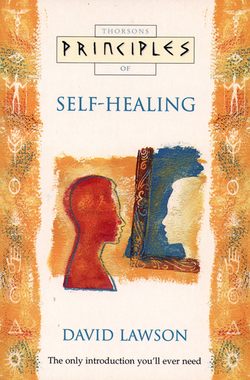Читать книгу Self-Healing: The only introduction you’ll ever need - David Lawson - Страница 19
CHANGING OUR THOUGHTS
ОглавлениеWhen we feel stuck, unhappy, depleted or distressed there is always something we can do to make a difference: we can change the thought. We can ask ourselves ‘What is the belief that is contributing to this problem?’, or ‘How are my thoughts affecting my feelings, depleting my energy and inhibiting my ability to grow?’ We can learn to listen to our thoughts, notice the impact that they have on our lives and make the choice to change them.
When we are sick we can take positive action by subscribing to the appropriate medical or complementary treatments that are available to us, but this is not the only thing that we have it in our power to do. We can take the time to notice the thoughts and beliefs that could be contributing to our condition and change them to thoughts that will support our treatments and stimulate or, in some cases, accelerate the healing process.
When we are having problems in our relationships we can ask ourselves ‘Have I learned to think, act or respond in ways that could be contributing to these problems?’ The way that we think about relationships in general, the beliefs that we hold about people of the opposite sex, people of the same sex, our sexuality, our bodies and our self-esteem all contribute to the kinds of relationship that we create. If we do not like what we are creating we may need to change the thought.
We can begin to notice our thoughts and beliefs by listening to the language that we use. What words do you use again and again when you are on the telephone, talking to your parents, talking to your children, talking to your partner, conversing with a colleague or making small talk with someone that you have just met? Do you complain about the state of the world? Do you criticize yourself or other people? Do you talk about the things that are limiting you or lacking in your life? Do you use ‘struggle words’ such as hard, difficult or trying? Do you use compulsive words such as ought, must and should?
The more that we listen to ourselves talking, the more we can begin to notice the negative or limiting conversations that we have during the course of the day and the easier it is to pinpoint some of our underlying negative or limiting beliefs.
Exercise: Mind your Language
Take a day to listen to the language that you use. Is the main content of your conversation negative or positive? Are you critical, blaming and quick to judge or are you generally accepting, supportive and compassionate when you talk about yourself and other people? Do you talk about life in a way that is fearful or that expects failure or do you use words that invite safety, positive opportunities and success? Is your language filled with struggle words? Do you talk about how hard your life is or do you talk about the ease and joy of life?
If it helps, carry a pen and notebook around with you so that you can record anything that you notice about your choice of words and ideas. Alternatively, leave a tape recorder switched on for periods of time so that you can forget it is there and allow yourself to talk as you normally would.
Perhaps you will discover that the things you say are constantly negative. Some people are amazed when they do this exercise because they generally believe themselves to be quite positive and have not previously noticed the mass of negative or limiting words, phrases and concepts that they utter. Even genuinely positive people may pinpoint negative patterns of thought that they are still carrying with them from their childhood or from some period of frustration or disappointment that they have had in their lives.
If you do not notice very much, do not worry, it takes practice to listen to ourselves. Pinpointing even just one thing can begin a powerful process of transformation. Here is a guide to some common words or phrases that may help you.
